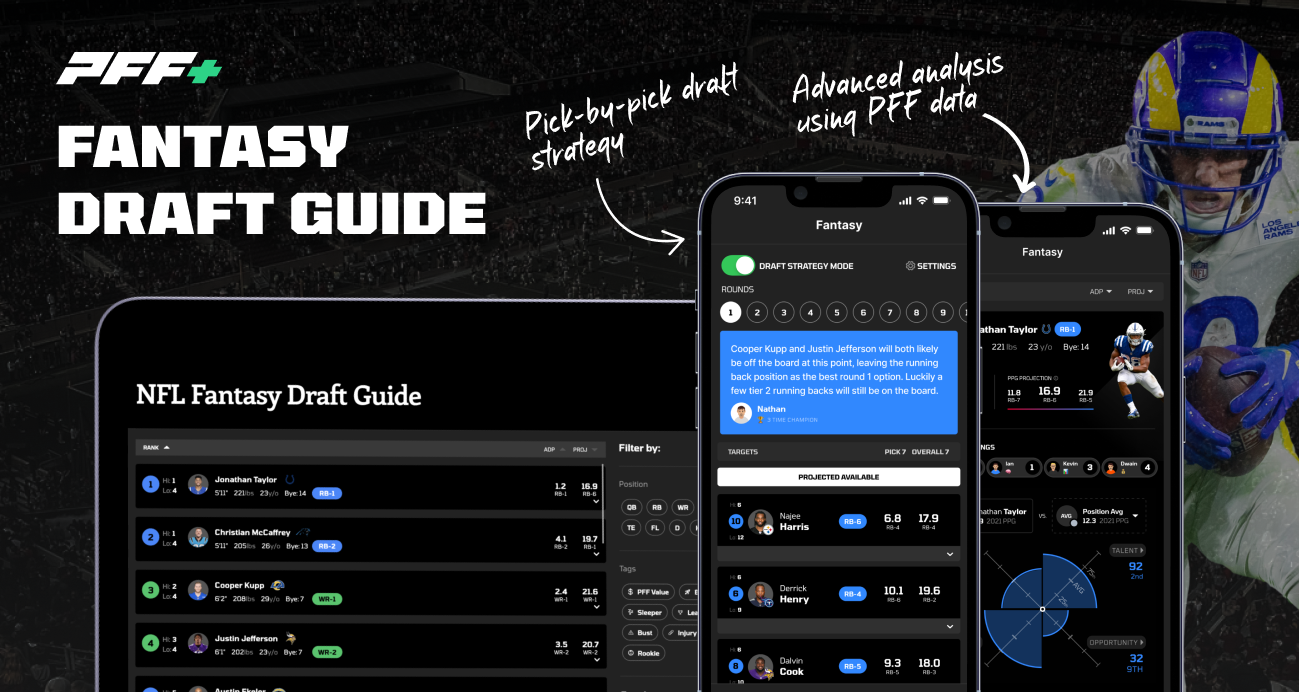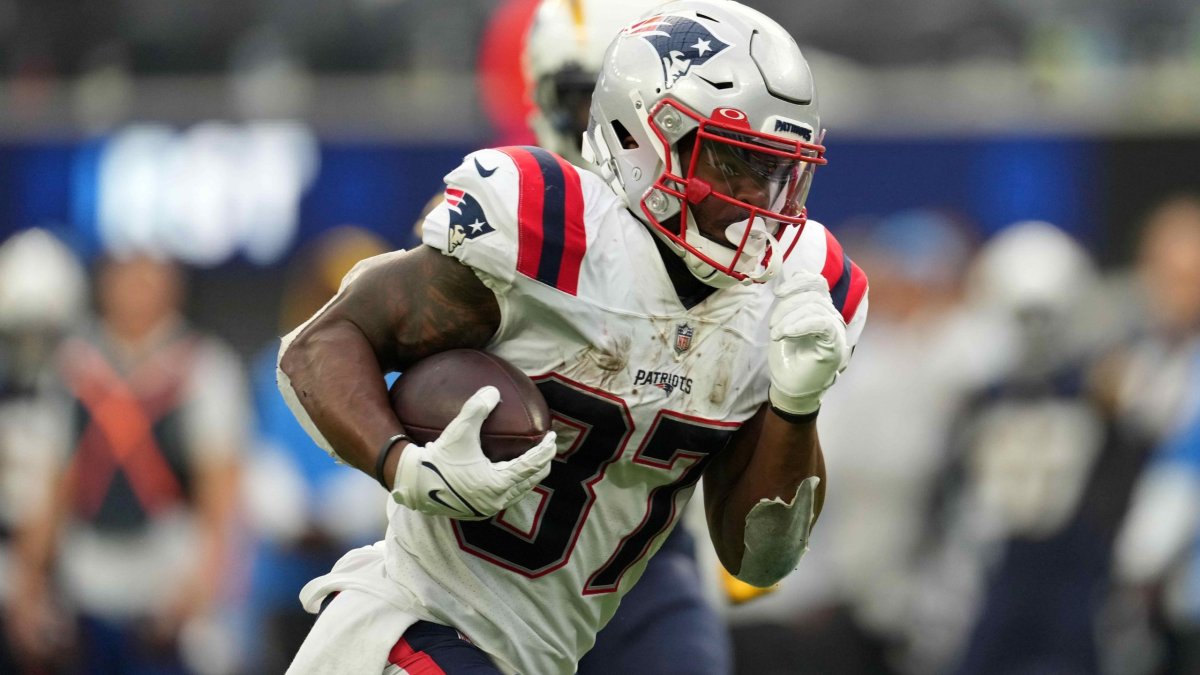Fantasy football points don’t always correctly reflect the proper value for a particular skill. Yes, it makes sense that rushing and receiving touchdowns are worth six points, and one point for every 10 total yards of offense seems right.
Also yes, how does Deebo Samuel get the same amount of points for catching a six-inch pop pass from Jimmy Garoppolo as Tee Higgins does for mossing two professional defenders 40 yards downfield?
I believe that the act of simply catching a football isn’t equivalent to picking up 10 rushing or receiving yards, but oh well, it’s the game, and for that reason, it’s in the best interest of all fantasy managers to adjust and learn how to benefit from this wonky scoring system – especially when it comes to running backs who function heavily into the pass and run game alike.
The following is a breakdown of 10 especially volatile running backs when analyzing the biggest risers and fallers in full point-per-reception (PPR) scoring versus half-point and standard formats from PFF’s 2022 fantasy projections.

Worse in PPR formats
Five running backs stood out with a rather large ranking difference when comparing their PPR rank against standard rank in favor of the latter, as these players aren’t all that receiving friendly and are more reliant on their rushing production:
RBs Damien Harris (-6 ranking difference from PPR to standard) and Rhamondre Stevenson (-11), New England Patriots
The Patriots’ ever difficult-to-predict backfield has most often supplied a fantasy star in the form of its top pass-catching back. The Patriots’ No. 1 running back in PPR points per game over the past decade has been as follows (minimum eight games):
- 2021: Damien Harris (RB20)
- 2020: Rex Burkhead (RB35)
- 2019: James White (RB23)
- 2018: White (RB9)
- 2017: Burkhead (RB18)
- 2016: LeGarrette Blount (RB15)
- 2015: Blount (RB38)
- 2014: Shane Vereen (RB31)
- 2013: Vereen (RB8)
- 2012: Stevan Ridley (RB20)
Look no further than Harris (15 touchdowns in 2021) and Blount (18 in 2016) for examples of how even high touchdown totals struggle to make up the gap with target-hog backs.
Last season, that man was Brandon Bolden after James White dislocated his hip in Week 3. Perhaps a slow recovery from White could give Stevenson a chance to take over as the offense’s primary pass-down back, but there are other candidates such as Pierre Strong Jr., J.J. Taylor and maybe even Ty Montgomery who could also vie for the role.
Bottom line: Both Harris and Stevenson are better values in non-PPR leagues as the primary touchdown scorers of the league’s reigning No. 6 ranked scoring offense. Stevenson will be less prevalent on this list should White wind up missing a portion of the 2022 season. Even then, remember, nothing is guaranteed with New England running backs.



 © 2024 PFF - all rights reserved.
© 2024 PFF - all rights reserved.